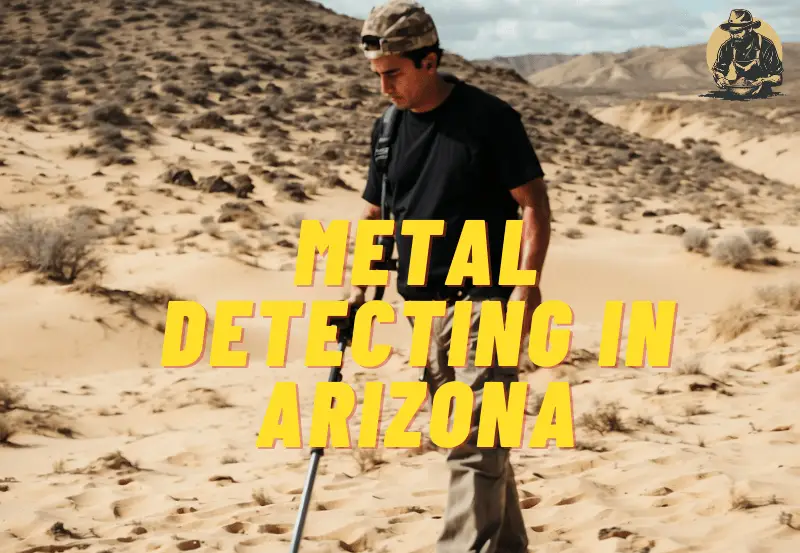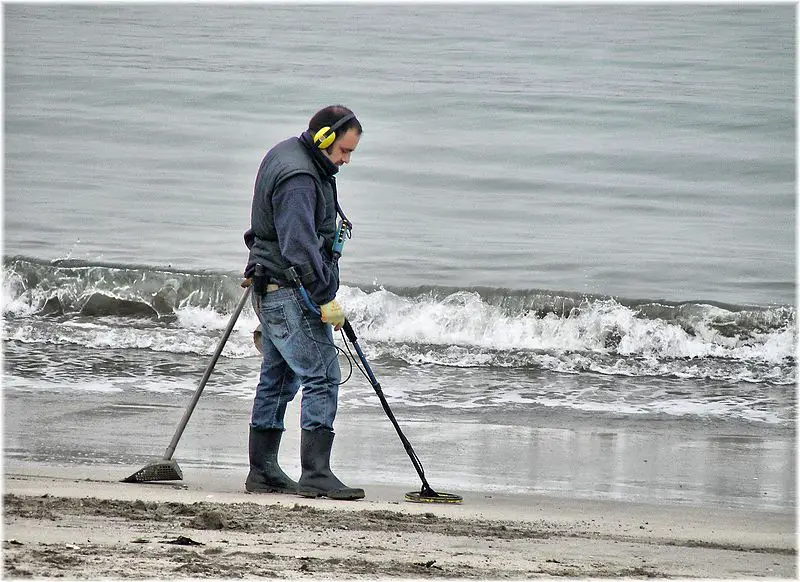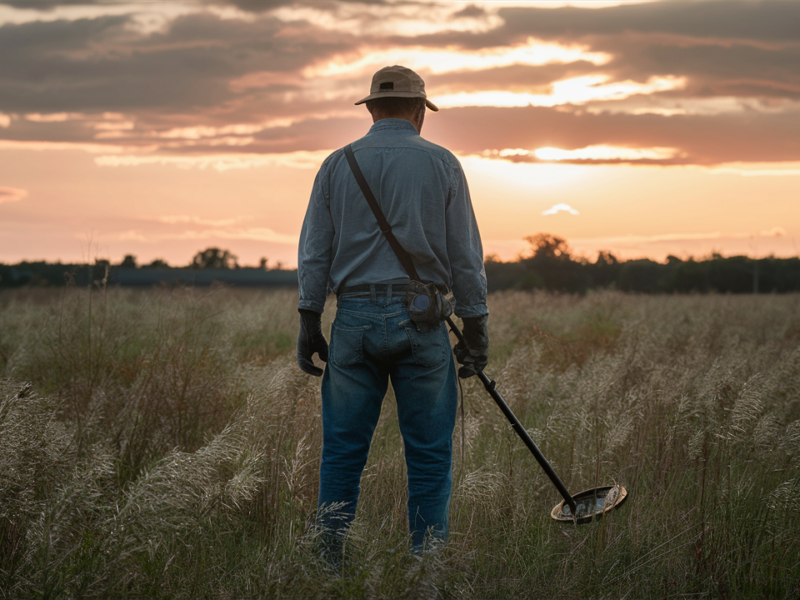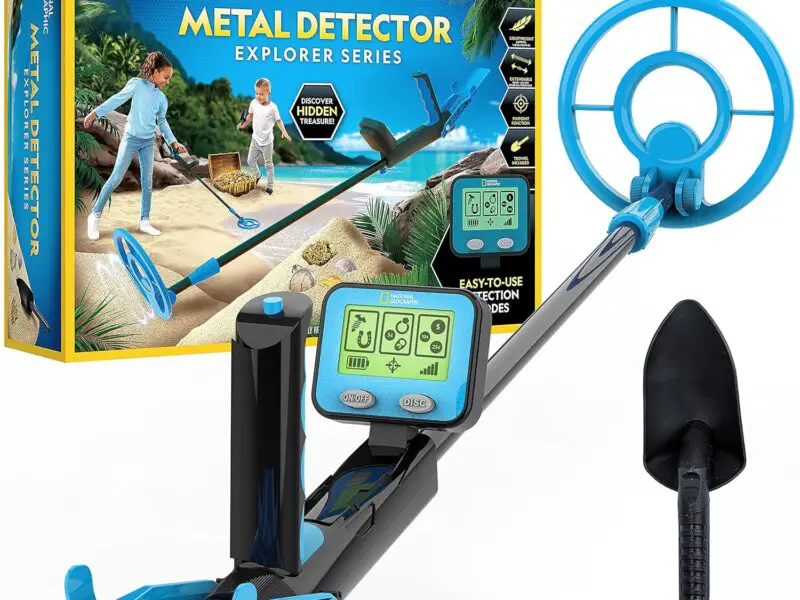Are you ready to embark on a thrilling adventure in the Arizona desert? Look no further than “Metal Detecting in Arizona: A Comprehensive Guide to Desert Treasure Hunting.” This captivating guide is your ultimate companion to uncovering hidden gems buried beneath the sandy terrain. From ancient artifacts to lost treasures, you’ll discover the rich history and abundant possibilities that await you in Arizona’s vast desert landscape. So grab your metal detector and get ready to unearth the secrets of this captivating region!
Finding the Best Metal Detectors
If you’re interested in taking up metal detecting as a hobby in Arizona, the first step is finding the best metal detector for your needs. Researching various metal detector brands is essential in order to make an informed decision. Take the time to read reviews, compare prices, and consider the features that are important to you. Some popular brands to consider include Garrett, Minelab, and Fisher. Remember to take into account factors such as durability, sensitivity, and ease of use when making your decision.
Researching Metal Detector Brands
When researching metal detector brands, make sure to read reviews from other metal detecting enthusiasts. They can provide valuable insights into the performance and reliability of different models. Additionally, look for brands that offer customer support and warranty options. Choosing a reputable brand can give you peace of mind knowing that you’re investing in a high-quality metal detector.
Considering the Type of Metal Detector
Before purchasing a metal detector, it’s important to consider the type that best suits your needs. There are different types of metal detectors specifically designed for various purposes such as coin shooting, relic hunting, or gold prospecting. Think about the places you plan to search and the specific items you are interested in finding. This will help you determine the best type of metal detector for your specific goals and increase your chances of success. Read more here
Evaluating Price Range and Features
Price is a significant factor to consider when buying a metal detector. Determine your budget and find a metal detector that falls within that range without compromising on quality. It’s also important to evaluate the features of the metal detector you’re considering. Look for features such as discrimination settings, waterproof capabilities, depth indicators, and target identification. These features can enhance your metal detecting experience and help you find more valuable treasures.
Understanding Metal Detecting in Arizona Laws
Before setting out on your metal detecting adventures in Arizona, it’s crucial to familiarize yourself with the state’s metal detecting laws and regulations. By doing so, you can ensure that you’re following the rules and avoiding any potential legal issues.
Researching State Laws and Regulations
Start by researching the legal requirements for metal detecting in Arizona. This includes understanding laws related to private property, public land, and protected areas. Familiarize yourself with any restrictions or permits that may be required.
Metal Detecting City and County Regulations and a Link to a List of National Parks
This resource provides information on cities and counties that either require a metal detecting permit or prohibit metal detecting altogether.
- Apache Junction, AZ: No permit required. Metal detecting allowed in city parks. Condition: Leave the park as found. Parks are patrolled by Park Rangers.
- Bisbee, AZ: No permit required. Metal detecting allowed with restrictions. Code 11.2.5: No digging, sod removal, or actions harmful to plant life in parks. City Code | Phone: 520-432-6004
- Marana, AZ: No permit required for city parks. Conditions: Fill in holes, remove trash. Town Code
- Oro Valley, AZ: Permit required, no fee. Obtain permits from Parks and Recreation Office. Town Code | Phone: 520-229-5050
- Pima County, AZ: Metal detecting not allowed, including in county parks. County Code
- Tucson, AZ: Permit required, no fee. Obtain permits at any Parks and Recreation Office.
Identifying Restricted Areas
Certain areas in Arizona may be off-limits for metal detecting. These areas might include national parks, historical sites, and Native American reservations. It’s essential to identify these restricted areas and avoid metal detecting there to avoid legal repercussions.
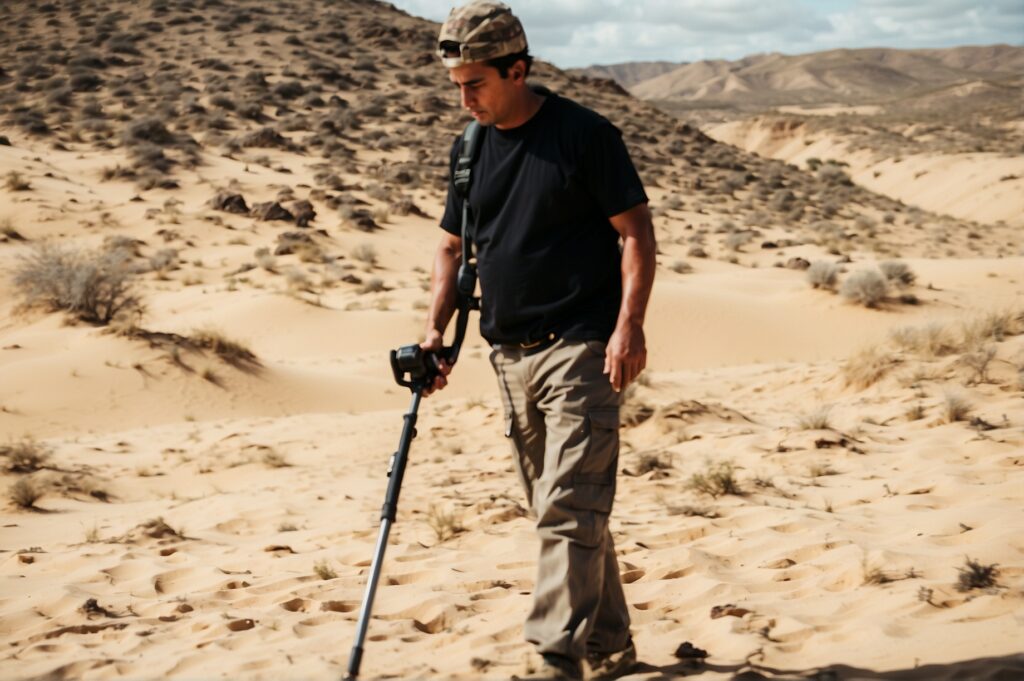
Exploring Arizona’s Historic Sites
One of the fascinating aspects of metal detecting in Arizona is the opportunity to explore its rich history. From ghost towns to mining camps, the state is a treasure trove of historic sites waiting to be discovered.
Researching Historic Locations
Before visiting historic sites in Arizona, it’s helpful to conduct thorough research. Look for information on the history of the area, any documented treasure finds, and notable events that took place there. This knowledge will enrich your metal detecting experience and provide context for the items you may uncover.
Visiting Ghost Towns and Mining Camps
Ghost towns and mining camps are particularly intriguing locations to explore as a metal detectorist. These abandoned settlements once thrived with activity, and now they hold the potential for hidden treasures buried beneath the surface. Research different ghost towns and mining camps in Arizona and plan your visits accordingly.
Exploring Old Railroads and Stagecoach Stops
Old railroads and stagecoach stops are also excellent spots for metal detecting in Arizona. These transportation routes were vital during the state’s development, and remnants from that time may still be buried in the ground. With a metal detector in hand, you could potentially uncover coins, relics, or even forgotten artifacts from this era.
Discovering Natural Landscapes
While Arizona is renowned for its deserts, the state also boasts diverse natural landscapes that offer unique metal detecting opportunities. From desert areas to rivers, streams, and mountainous regions, each environment presents its own set of challenges and potential discoveries.
Detecting in Desert Areas
Desert areas can be particularly fruitful for metal detecting, as they have often been frequented by people throughout history. Keep in mind that the extreme temperatures and harsh conditions in these regions may require additional precautions. Stay hydrated, wear protective clothing, and be mindful of your surroundings.
Searching near Rivers and Streams
Rivers and streams have always been gathering places, attracting people from different eras. Metal detecting near these water sources can yield interesting finds. Look for areas where people often settled, camped, or crossed, as these are likely spots where artifacts and relics may be buried.
Exploring Mountainous Regions
Arizona’s mountainous regions offer a unique landscape for metal detecting. Many trails and areas were used by indigenous tribes, early settlers, and miners, leaving behind the potential for exciting discoveries. Research popular hiking trails and mountainous areas to explore with your metal detector.
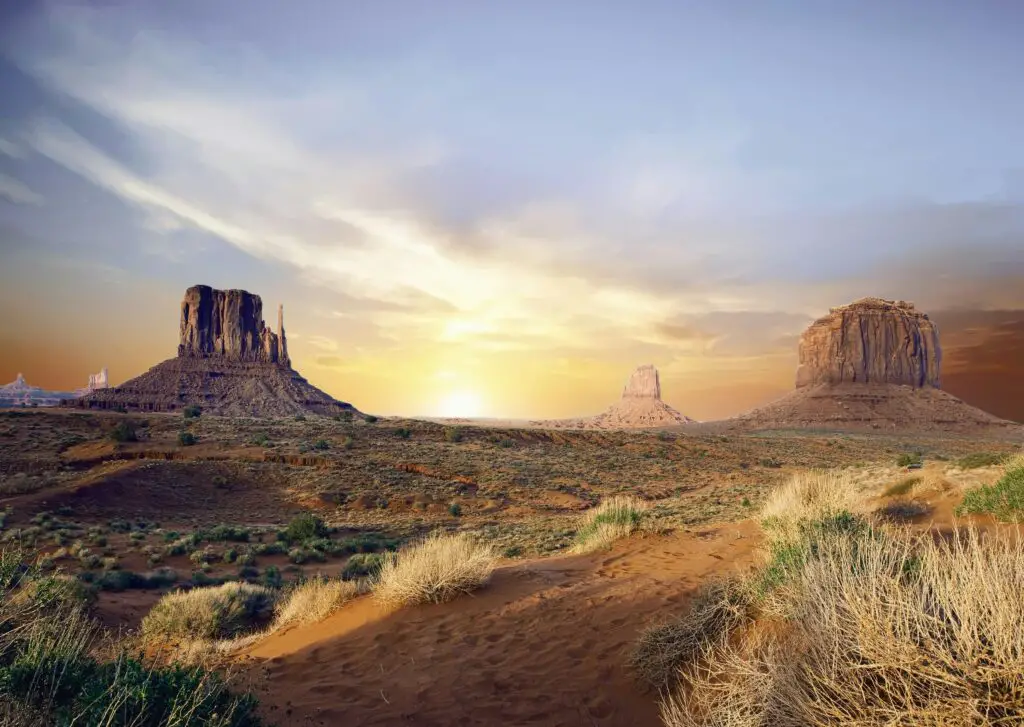
Unearthing Native American Artifacts
Another aspect of metal detecting in Arizona is the potential to uncover Native American artifacts. However, it’s essential to approach this endeavor with cultural sensitivity and respect for the history of the indigenous tribes.
Understanding Cultural Sensitivity
Before heading out to search for Native American artifacts, take the time to educate yourself on cultural sensitivity. Learn about the importance of preserving indigenous history and the potential legal ramifications of mishandling or selling these artifacts.
Researching Tribes and Historical Context
To better understand the significance of Native American artifacts, research the tribes that inhabited the areas you’re planning to explore. Learn about their history, traditions, and the artifacts commonly associated with them. This knowledge will allow you to appreciate the artifacts you might find and treat them with the respect they deserve.
Visiting Indian Reservations and Museums
To deepen your understanding of Native American culture and artifacts, consider visiting Indian reservations and museums in Arizona. These places offer a wealth of information and exhibits that can provide valuable insight into the history and significance of these artifacts.
Joining Local Metal Detecting Clubs
Joining a local metal detecting club in Arizona can enhance your metal detecting experience. These clubs provide opportunities for learning, networking, and participating in group hunts.
Finding a Metal Detecting Club in Arizona
To find a club in Arizona, search online or inquire at metal detecting shops and dealers in the area. They will often have information about local clubs and can point you in the right direction. Joining a club will allow you to connect with fellow enthusiasts who share your passion for metal detecting.
Attending Club Meetings and Events
Attending club meetings is a great way to learn from experienced members. They can offer tips, advice, and information about the best locations to search. Clubs may also organize events such as group hunts, competitions, or guest speaker presentations that can further enrich your metal detecting journey.
Participating in Group Hunts
Group hunts organized by metal detecting clubs provide an opportunity to socialize with other enthusiasts while exploring new areas. These hunts can be a lot of fun and are often organized in locations with high potential for valuable finds. Share your experiences, learn from others, and enjoy the camaraderie of fellow treasure hunters.
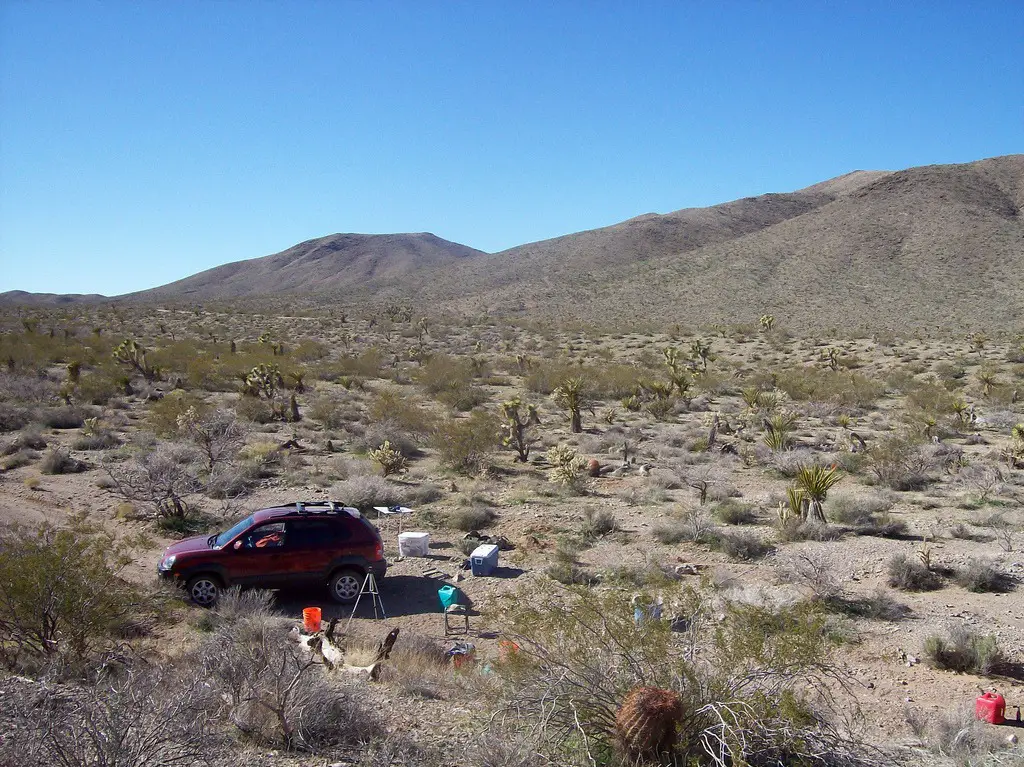
Protecting the Environment and Preserving History
As metal detectorists, it is crucial to respect the environment and preserve history. By following responsible practices, you can ensure that you leave minimal impact on the land and contribute positively to the preservation of historical artifacts.
Filling Holes Properly
When digging for targets, it’s essential to fill any holes you make properly. This means ensuring that the hole is backfilled, compacted, and visually indistinguishable from the surrounding area. Refilling holes not only helps maintain the aesthetics of the land but also prevents potential hazards for others.
Reporting Valuable Finds to Authorities
If you come across significant or historically valuable items while metal detecting, it’s important to report them to the appropriate authorities. Consult with local archaeologists, museums, or historical societies to ensure that the artifacts are properly documented and preserved for future generations.
Collaborating with Archaeologists and Preservationists
Metal detectorists can contribute to the preservation of history by collaborating with archaeologists and preservationists. Establishing relationships and working together can lead to valuable insights, joint fieldwork, and the opportunity to make significant contributions to the understanding of a particular area or time period.
Techniques and Strategies for Successful Metal Detecting
Successful metal detecting requires knowledge of various techniques and strategies to maximize your chances of finding valuable items.
Learning Proper Swing Technique
The way you swing your metal detector can greatly impact your success rate. Learning the proper swing technique ensures that you cover the ground thoroughly and don’t miss potential targets. Practice your swing technique regularly to become more proficient and efficient in your searches.
Understanding Signals and Tones
Each metal detector emits different signals and tones to indicate the presence of a target. Understanding these signals is crucial to identifying the type of metal you’ve found. Spend time familiarizing yourself with the sounds your metal detector produces and learn to differentiate between signals to increase your accuracy.
Using Pinpointers and Digging Tools
To effectively recover targets, it’s beneficial to use pinpointers and digging tools. Pinpointers allow for more precise location of targets, while digging tools such as trowels or handheld shovels make excavation easier. These tools can greatly improve your efficiency and minimize damage to the ground.
Cleaning and Preserving Metal Detecting Finds
Once you’ve successfully uncovered items with your metal detector, it’s important to clean and preserve them properly to ensure their longevity.
Cleaning Techniques for Different Materials
Different materials require specific cleaning techniques to avoid damage. Research the best cleaning methods for different types of metals, relics, or artifacts to ensure their preservation. Methods may include gentle brushing, soaking, or using specialized cleaning solutions. Always handle artifacts with care and avoid harsh chemicals that could cause irreversible damage.
Preserving and Displaying Artifacts
Preserving and displaying your metal detecting finds is a way to celebrate your discoveries and share them with others. Consider investing in preservation materials such as acid-free display cases, archival storage containers, or protective coatings. By doing so, you can ensure your artifacts remain in good condition for years to come.
Applying Conservation Methods
To guarantee the long-term preservation of your metal detecting finds, consider applying conservation methods. This involves stabilizing artifacts, using appropriate materials for storage and display, and consulting with professionals to ensure the preservation of historically significant items.
Resources for Metal Detecting Enthusiasts in Arizona
To further enhance your metal detecting journey in Arizona, utilize the numerous resources available to enthusiasts. Read more about Metal Detecting forums here
Upcoming Events and Treasure Expos
Stay informed about upcoming metal detecting events and treasure expos in Arizona. These gatherings offer opportunities to meet other enthusiasts, attend educational seminars, and browse a wide variety of vendors. Participating in these events can broaden your metal detecting network and introduce you to exciting new opportunities.
Metal Detecting in Arizona can be a thrilling and rewarding hobby. With proper research, understanding of the laws, and exploring the diverse landscapes the state has to offer, you can embark on an exciting adventure filled with historical treasures. Remember to always practice responsible metal detecting and respect the environment and cultural heritage of the land you explore. Happy hunting!
